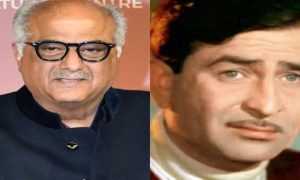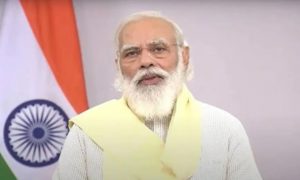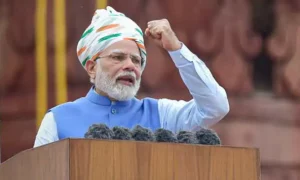On AR Rahman’s 55th birthday, looking back at how the composer spearheaded the revolution of being a pan-Indian artiste, and he did it way before we even knew the term existed.
The success of SS Rajamouli’s Baahubali is often quoted as a turning point in Indian cinema as it was with this film, movies broke the barriers of being from a particular region and became pan-Indian. Since Baahubali, the wave of pan-Indian films has taken the country by storm. Films don’t belong only to a particular language anymore and while not everyone is a fan of reading subtitles, dubbing comes in handy with making regional films appeal to a larger audience. But way before the success of Baahubali, when Bollywood and other regional film industries were seen as chalk and cheese, and it was a one-off occasion for artists and technicians of one industry to work in the other, AR Rahman spearheaded the revolution of being pan-Indian with his music and united everyone – from north to south.
We often hear that music breaks language barriers and in a country like ours, where dialects and languages change with every city, there can be no better unifying factor than music but somehow, popular culture woke up to this realisation much later than expected. When Mani Ratnam’s Roja released in 1992, the film was a massive success but what captured the audience was its music, it was something they had never heard before, and it was by a first time music composer – AR Rahman. In a conversation with The Times of India in 2017, Mani Ratnam was asked if the unique nature of Rahman’s music made him wonder, ‘What if people don’t get it?’ “The film was called Roja, it was set in Kashmir and the music that he played had the feel of that winter — that cold of that place. So, I was not worried if somebody would get it. I was getting it. Also, I thought it was absolutely fantastic and it was just going to lift my visuals,” he said.
Roja’s music was a success, not just in Tamil, but also in Hindi, and it caught Rahman by complete surprise. “We didn’t even know that the music was going to work in Hindi, but it was so big in Hindi as well. So, the next movie, Bombay was such a challenge. This is one of the reasons why we settle for phonetics. Humma Humma or Chaiyya Chaiyya, they are all phonetics in a way, and so we can get away with not being region-specific,” said Rahman in the same chat as he discussed the pan-Indian nature of his music.
Roja’s uber success got Rahman a National Award, and while he continued to be a sensation in Tamil cinema, Hindi cinema saw it as a “fluke.” Ram Gopal Varma, who was the first director to rope in Rahman for his Hindi film Rangeela, shared in his blog in 2013 that his investors at the time saw Roja’s success as an anomaly. “My investors preferred Anu Malik, as they felt the success of the music of Roja’s dubbed version was a fluke, and that this kind of music would not work in Hindi. The very fact that AR was not signed by any top Hindi filmmaker after Roja is proof-enough, they reasoned,” he wrote.
Soon enough, the music of Rangeela left them dumbfounded. “His tunes were so original in his interpretation of the emotion of a situation that a conventional ear will take time to let it sink in,” RGV wrote. Tamil films like Minsara Kanavu, Kadhalan, Indian, Mr. Romeo, Kadhal Desam, Jeans among many others from the late 90s had their soundtracks releasing in multiple languages including Hindi because Rahman’s music had crossed all regional boundaries, thereby making him the first pan-Indian artiste who could work in any language, and be successful in it. Not all Tamil films of that era were big in the Hindi-speaking states, but Rahman’s dubbed music was sold at every cassette shop and the maestro had a huge fan army behind him even before he started composing in other languages.
Rahman is also one of the only Indian composers to have a global following, which gained momentum after his soundtrack for Slumdog Millionaire became a massive hit. One of the very few Indians to win a BAFTA, a Golden Globe and an Academy Award – Rahman’s global appeal is further proof that it is often the gatekeepers of the music industry who dictate what one should be listening to, and if it were up to them, we would still be listening to dubbed versions of Rahman’s songs, like we did back in the Roja days.
Of course in the years since, Rahman has composed music that has been accompanied by lyrics of various languages and across all those languages, he continues to remind us that being pan-Indian is not a new phenomenon.





































